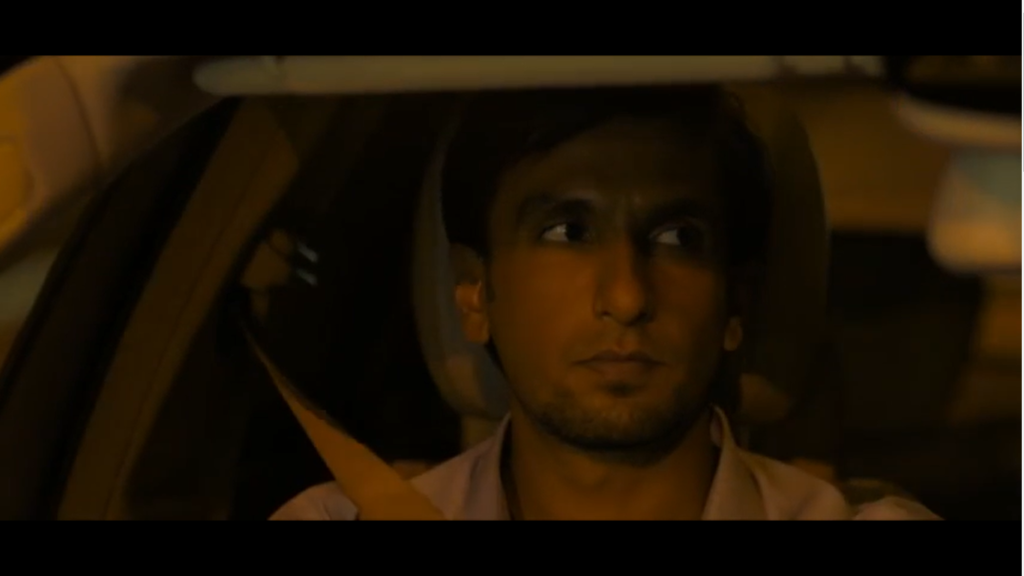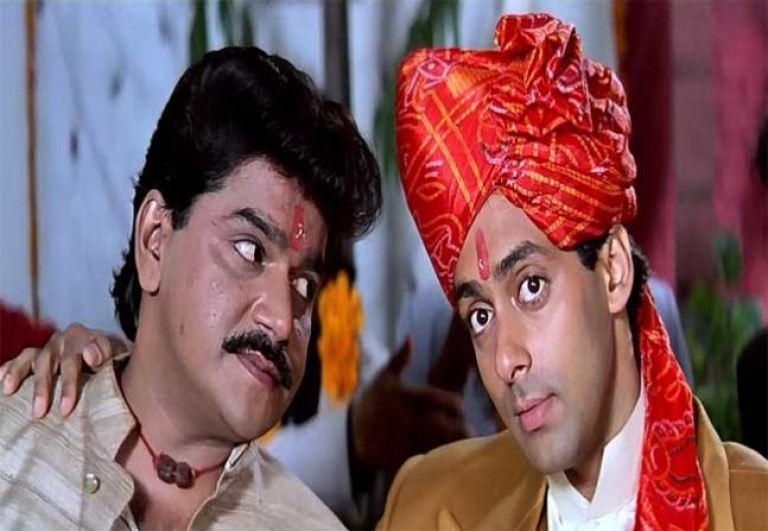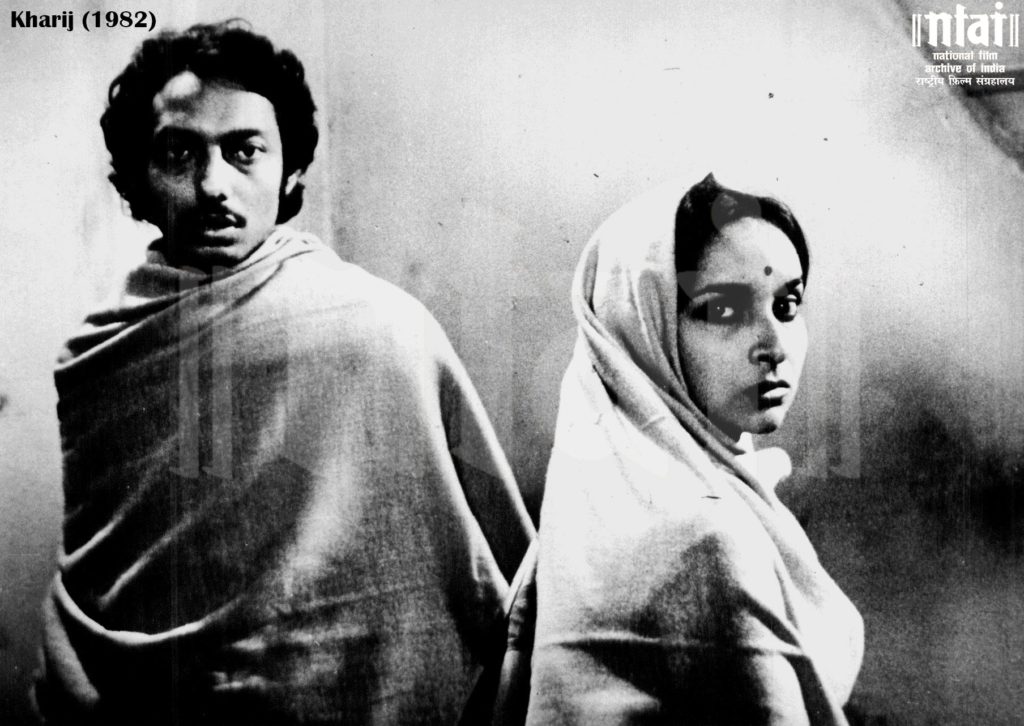Gully Boy and Parasite have the same front-seat-back seat dynamic of “servants and masters”. So does Joker. But Gully Boy locates its problems in the abusive, alcoholic fathers of Dharavi. Why is Hindi film so shy about class conflict?
Around the mid-point of the Oscar-winning Parasite, right before it pivots to another gear, is a conversation that sums up the film for me. “The madam… is rich but still nice,” says Kim Ki-taek, the father, who is a chauffeur for madam and her family. “Nice because she’s rich,” says his wife Chung-sook, who is a housekeeper in the same family. “Hell, if I had all this money, I’d be nice too.” The four members of the impoverished Kim family in Seoul have conned their way into the employ of a wealthy family.
Chung-sook’s retort has been on my mind as we go through the lockdown, arguably the harshest in the world. There’s been a lot of niceness on display, about domestic staff, on social media. I use the word ‘display’ descriptively, not in disdain or irony. Several people have spoken of paying their staff’s full salaries and encouraged others to do the same. Some have spoken of realising how much labour their staff put in, of enquiring about their well-being, supplying them with essentials. These posts have been ‘displayed’ with the likely purpose of exhorting others to do the same—pay salaries of staff, call them up, appreciate their work. But there is also the power dynamic inbuilt in social media—whose “niceness” can be seen? Whose niceness is backed up by access to super-fast WiFi, and the language of articulation that resonates?
A great deal of un-niceness has shown up as well. In the very first week, a video emerged of a woman in a car just outside a residential complex arguing heatedly with the watchman. She has a child next to her and a masked, silent woman in the back seat she refers to as “meri maid”. The watchman has instructions that domestic staff cannot be allowed in, but the woman challenges this furiously, honking continuously for maximum intimidation, “I am not here to sweep, mop, cook and wash dishes,” she says, before eventually driving in triumphantly.
On 1 April, the beginning of Week 2 of the lockdown, the Bangalore police commissioner tweeted: “Respected Important persons, if your driver, maid and watchmen are indispensable, please don’t send them home everyday, make arrangements at your home please don’t ask for passes for them, yours respectfully (sic)” . Clearly, citizens wanted their domestic staff to work but would not allow them to stay in their homes. On 8 April, the Delhi Police registered an FIR against a man working as a security guard for a family in Delhi’s affluent Defence Colony locality, three members of whom tested positive for Sars-Cov-2, for spreading infection. On 17 April, the guard’s test result was reported—negative, yet no police complaint was lodged against the family for explicitly violating the lockdown rule of no movement of people, and making the guard report for duty. On 9 April, the Delhi police asked residents of the colony to “keep watch on their domestic help, drivers and guards”, in other words, encouraging them to continue utilising the services of staff in direct violation of the instructions from the Prime Minister, who has explicitly asked citizens to pay the salaries of their domestic staff and give them leave for the lockdown. In the fourth week of the lockdown, a multi-city report noted that domestic workers had either not been paid their salaries or had to show up for work to claim their full salaries.
Soon, news reports emerged of domestic workers not being paid in full, sometimes not at all. Early this month, a tweet spoke of a family in Defence Colony who unceremoniously threw out a cook they had hired recently when she tested positive for the novel coronavirus. She waited, weeping, on the street until the Delhi government sent help.
There have been pandemics earlier, there have been lockdowns too. What is unprecedented in this lockdown how it has blocked access to cheap domestic labour, a staple of urban India. In the post-Independence era, when wealthy families moved from houses to apartment-type units, as researchers Seemin Qayum and Raka Ray note, it pushed a change from ‘live-in’ help to part-time help. Also, the ‘joint family’, which had meant the unpaid labour of several women, broke down. Women joining the workforce and men not helping with housework meant a huge dependence on domestic help.
According to the Indian government, 3.9 million persons are employed as domestic workers (based on data collected in 2012.) In 2014, the Self-Employed Women’s Association estimated that a more likely figure was 50 million domestic workers. Notice how dated the data is, a sign of how little importance is accorded to domestic labour. Unfortunately, there are no economic surveys that measure per capita dependence on domestic help. If there were, wouldn’t the Anglophone upper middle class in India top that global index?

Ironically, as we entered the first week of lockdown, Parasite became available for streaming in India. Would the film have made us examine our “niceness” towards our “servants”? If cinema is a lens to society, what does Parasite show us about ourselves?
Interestingly, the other big film of the Oscars and the past year, Joker, is also a drama that features a relationship between employers and their domestic staff. The joker Arthuer Fleck’s mother worked in the household of billionaire Batman Bruce Wayne as domestic staff. She was let go in mysterious circumstances, which precipitated her decline into instability and financial precarity. It shapes an uncertain, anxious life for her son, which later combusts into murderous rage against the Waynes and a society shaped by billionaires like them.

Parasite does not show the same blood-rushed rancour against employers, rather there is a robust antagonism between staff and bosses, an intelligent awareness that the interests of the two classes are in conflict and there must be a pitting of wits. Interestingly, the Indian entry to this edition of the Oscars also features a relationship between domestic staff and their employers. Gully Boy did very well in India, at the box office and especially with the critics. Like in Joker, this relationship is not the focus of the film, but it frames the action and characters. Murad, the eventual Gully Boy of the title, is the son of a driver to a wealthy Mumbai household, his stepmother is their maid. When his father breaks his leg, Murad reports for duty. “Your father is a driver. A servant’s son becomes a servant,” his uncle tells him. The prison of his life circumstances is the trigger for his verse and artistry that makes him a star, breaking out of poverty.


But unlike Joker and Parasite, Gully Boy turns a positively empathetic gaze towards the employers even though their presence in the film is more distant than in the other two films. (The employers, for instance, barely have spoken lines.) In one of the notable sequences featuring Murad at work, he is chauffeuring a young woman in the family that employs him, where she cries quietly at the back and he notices in the rear-view mirror. If British writing and cinema of a period offer the upstairs and downstairs dynamic, Parasite and Gully Boy offer the back seat-front seat dynamic between employer and employee that we see in Parasite. Here, Murad looks like he wants to reach out and comfort his crying boss. The scene then cues to a song titled Doori:
Now see, you and I are this close,
But think how removed we are,
What could be the compulsion
That keeps us this far
Gully Boy is a sensitive, nuanced portrait of a poor Dharavi family, yet notice carefully. The problems in Murad’s life are directly caused by his volatile, dominating father. His mentor, MC Sher, too has a drunk for a father. There are lyrics in the film’s compelling album that speak of inequality, “eight rooms for four people”, “cars as long as hovels for entire families”, but there are no direct complaints against the employers who presumably have the eight rooms and long, sleek cars. In the absence of this, doesn’t it suggest that the poverty trap is caused by the violence and alcoholism of the poor, and remote uncontrollable factors in the economy? Where is the hostility to those that directly subjugate his life, his employers?
When his father breaks his leg, Murad reports for duty instead. “Your father is a driver. A servant’s son becomes a servant,” his uncle tells him. It is this dead end that triggers his verse, and helps him break into a different class of opportunities. But unlike Parasite, Gully Boy turns a blind gaze on the employers.

Gully Boy is unusual in Hindi cinema in that it tells the story from the perspective of the domestic help, but it continues the tradition of romanticising the ‘servant’ and ‘master’ relationship; in particular upholding the ‘servant’ as a noble, upright figure, the classic ‘Ramu kaka’ of countless Hindi films. In the beginning of the ’90s, when Hindi films turned to urban settings, the domestic help became less visible, until Sooraj Barjatya upgraded the figure to the hero’s friendly sidekick in Maine Pyar Kiya (1989), a role Laxmikant Berde reprised in Barjatya’s Hum Aapke Hain Koun..! five years later. Director Anurag Kashyap, whose gritty black comedy is at the other end of the Barjatya spectrum, nevertheless replayed the family retainer as hero’s sidekick in Manmarziyan (2018). Piku (2015) had a Ramu kaka in Budhan, the attendant for the elderly father.

Across the world, domestic work is a poorly-paid and unorganised sector, with little or no enforceable rights and a markedly high probability of human rights and safety violations. For instance, a standard practice is confiscating passports of domestic staff or submitting their personal details for police verification. By any standards, these are violations of human rights and dignity. In India, this is compounded by poor salaries, dehumanising work conditions and caste prejudices.
The real stories of employer-employee relationships emerging during the lockdown are in sharp contrast to what Hindi cinema shows: the loyal family retainer or family friend, as in Bawarchi. Is it possible to hang out with the person who first submits your details to the police station? Is it possible to shrug off the fact that you can’t enter your employer’s home because you are the driver? Murad seems to emerge from the wellspring of ‘noble servitude’ in Hindi cinema. Where is the antagonism, the raised hackles, the mutual disregard that Parasite shows? Even Zoya Akhtar’s short in Lust Stories, a searing take on the casual sex a young man enjoys with his domestic help before he prepares to marry someone else, shows no opposition to his actions, just resignation.
In an interview, the academic María Mercedes Vázquez Vázquez said that filmmaking is not only a function of the politics and aesthetics of filmmakers, but also their socio-economic class. The award-winning Roma is one of a number of Latin American films to look at society through the staff-employer lens. But, despite the empathetic gaze at Cleo and her long, hard days, we never hear Cleo’s voice, the critic Richard Brody pointed out. The film is unmistakably the nostalgic remembrance of director Alfonso Cuaron, one of Roma’s young charges.
Cinema and art are powerful mediums to assuage class guilt. Arguably, Hindi cinema’s ‘noble servant’ is a defence mechanism, a little clapping and candlelight tribute instead of genuine political honesty. Why not do what Parasite does — portray the subalterns as resourceful and intelligent, even violent, without eroding their dignity?
I’ll end with Mrinal Sen’s Kharij (1982). A young, affluent couple hires a boy ‘servant’ not much older than their own son in 1980s’ Calcutta, with a Communist government. The boy dies one night, possibly due to a gas leak in the kitchen where he sleeps. In the ensuing investigation, we occasionally see the boy’s father, but mostly we see the affluent couple and we realise they are not nice at all.

Sen uses the real first names of his actors and gives them his own surname. The message couldn’t be clearer — these people are us. The Sens could have easily given the boy a separate room in their large house, like they offer his father when he comes to collect his son’s belongings. Towards the end, when the boy’s father comes up to take the husband, Anjan’s, leave and raises his hand, Anjan flinches, expecting to be slapped. But the man is only folding his hands in a namaste. Yet, by then, we know that Anjan deserves much more than a slap.
The essay was published in The Hindu’s Sunday magazine